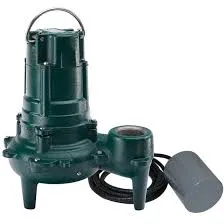Khmer
- Afrikaans
- Albanian
- Amharic
- Arabic
- Armenian
- Azerbaijani
- Basque
- Belarusian
- Bengali
- Bosnian
- Bulgarian
- Catalan
- Cebuano
- Corsican
- Croatian
- Czech
- Danish
- Dutch
- English
- Esperanto
- Estonian
- Finnish
- French
- Frisian
- Galician
- Georgian
- German
- Greek
- Gujarati
- Haitian Creole
- hausa
- hawaiian
- Hebrew
- Hindi
- Miao
- Hungarian
- Icelandic
- igbo
- Indonesian
- irish
- Italian
- Japanese
- Javanese
- Kannada
- kazakh
- Khmer
- Rwandese
- Korean
- Kurdish
- Kyrgyz
- Lao
- Latin
- Latvian
- Lithuanian
- Luxembourgish
- Macedonian
- Malgashi
- Malay
- Malayalam
- Maltese
- Maori
- Marathi
- Mongolian
- Myanmar
- Nepali
- Norwegian
- Norwegian
- Occitan
- Pashto
- Persian
- Polish
- Portuguese
- Punjabi
- Romanian
- Russian
- Samoan
- Scottish Gaelic
- Serbian
- Sesotho
- Shona
- Sindhi
- Sinhala
- Slovak
- Slovenian
- Somali
- Spanish
- Sundanese
- Swahili
- Swedish
- Tagalog
- Tajik
- Tamil
- Tatar
- Telugu
- Thai
- Turkish
- Turkmen
- Ukrainian
- Urdu
- Uighur
- Uzbek
- Vietnamese
- Welsh
- Bantu
- Yiddish
- Yoruba
- Zulu
Telephone: +86 13120555503
Email: frank@cypump.com
ធ្នូ . 25, 2024 02:28 Back to list
Efficient Solutions for Septic Tank Effluent Pumping Systems and Maintenance Techniques
Understanding Septic Tank Effluent Pumps A Comprehensive Guide
Septic tank systems are a crucial component of wastewater management, particularly in rural and suburban areas where connecting to a municipal sewer system is not feasible. At the heart of these systems is the effluent pump, which plays a vital role in the effective treatment and disposal of wastewater. In this article, we will explore the importance of septic tank effluent pumps, their operation, maintenance, and selection criteria.
What is a Septic Tank Effluent Pump?
A septic tank effluent pump is a specialized pump designed to transport wastewater (effluent) from a septic tank to a drainage field or other appropriate discharge point. Unlike a standard submersible pump, which may be used for general water removal, an effluent pump is engineered to handle the specific characteristics of septic effluent, which can include solid materials and varying pH levels.
Importance of Effluent Pumps
The primary function of an effluent pump is to ensure proper sewage management, which helps to prevent environmental contamination and protects public health. When a septic tank reaches its capacity, the effluent pump activates to eject the liquid waste into the leach field or soil absorption system. This process is essential for allowing the system to function effectively and to prevent the tank from overflowing, which can lead to unpleasant odors and hazardous conditions.
In addition to preventing backups and overflows, effluent pumps also contribute to the longevity of the septic system. By facilitating the movement of effluent, these pumps help maintain an optimal level of anaerobic activity in the septic tank, which is essential for breaking down waste effectively.
How Do Effluent Pumps Work?
Effluent pumps operate based on a simple yet effective principle. The pump is typically located within the septic tank and is activated by a float switch. This switch detects the rising level of effluent in the tank; when it reaches a predetermined height, the float switch triggers the pump to start, moving the liquid waste to the designated area.
Most effluent pumps are submersible, meaning they are designed to operate underwater. They are constructed from durable materials, such as cast iron or thermoplastic, to resist corrosive elements commonly found in wastewater. Additionally, effluent pumps come in various horsepower ratings, allowing homeowners and contractors to choose a pump that meets their specific needs.
Maintenance of Effluent Pumps
Proper maintenance of septic tank effluent pumps is essential for preventing system failures and costly repairs. Regular inspections are recommended to ensure the pump operates efficiently. Key maintenance tasks include
septic tank effluent pump

1. Regular Inspections Check for any obstructions or wear in the pump components. This may include inspecting the float switch, check valve, and impeller.
2. Cleaning The pump and surrounding areas should be cleaned to prevent clogs caused by solid materials.
3. Power Supply Check Ensure that the electrical connections are secure and that the breaker is functioning correctly.
4. Professional Servicing It’s advisable to have a professional inspect the entire septic system, including the effluent pump, at least once every three years.
Choosing the Right Effluent Pump
Selecting the right effluent pump involves understanding the specific needs of your septic system. Consider the following factors
- Pump Capacity Choose a pump with adequate horsepower based on the volume of effluent and the distance it needs to be pumped. - Durability Opt for pumps made from high-quality materials to ensure longevity and resistance to corrosion.
- Switch Type Consider whether a mechanical or electronic float switch is more suitable for your application.
- Warranty and Support Look for pumps that come with a robust warranty and support options to assist with any potential issues.
Conclusion
Septic tank effluent pumps are indispensable for efficient wastewater management in septic systems. Understanding their function, maintenance requirements, and selection criteria can significantly enhance the longevity and performance of your septic system. By investing in a reliable effluent pump and adhering to proper maintenance practices, homeowners can ensure their systems operate smoothly and safely, ultimately protecting their property and the environment.
-
Custom Drilling Mud and Slurry Pump Supplier - High Efficiency, Tailored Solutions
NewsJun.10,2025
-
Supply Vertical Submersible Sewage Pump High-Efficiency WQ/QW Pumps Supplier
NewsJun.10,2025
-
Premium Sewage Ejection System & Pumps Efficient Waste Removal
NewsJun.09,2025
-
Premium Wholesale Slurry Pump Impellers Durable & Efficient Slurry Handling
NewsJun.09,2025
-
Top Sewage Pump Companies Durable Industrial Solutions for Efficiency
NewsJun.09,2025
-
Heavy Duty Slurry Pumps - OEM High Performance & Bulk Wholesale
NewsJun.09,2025










